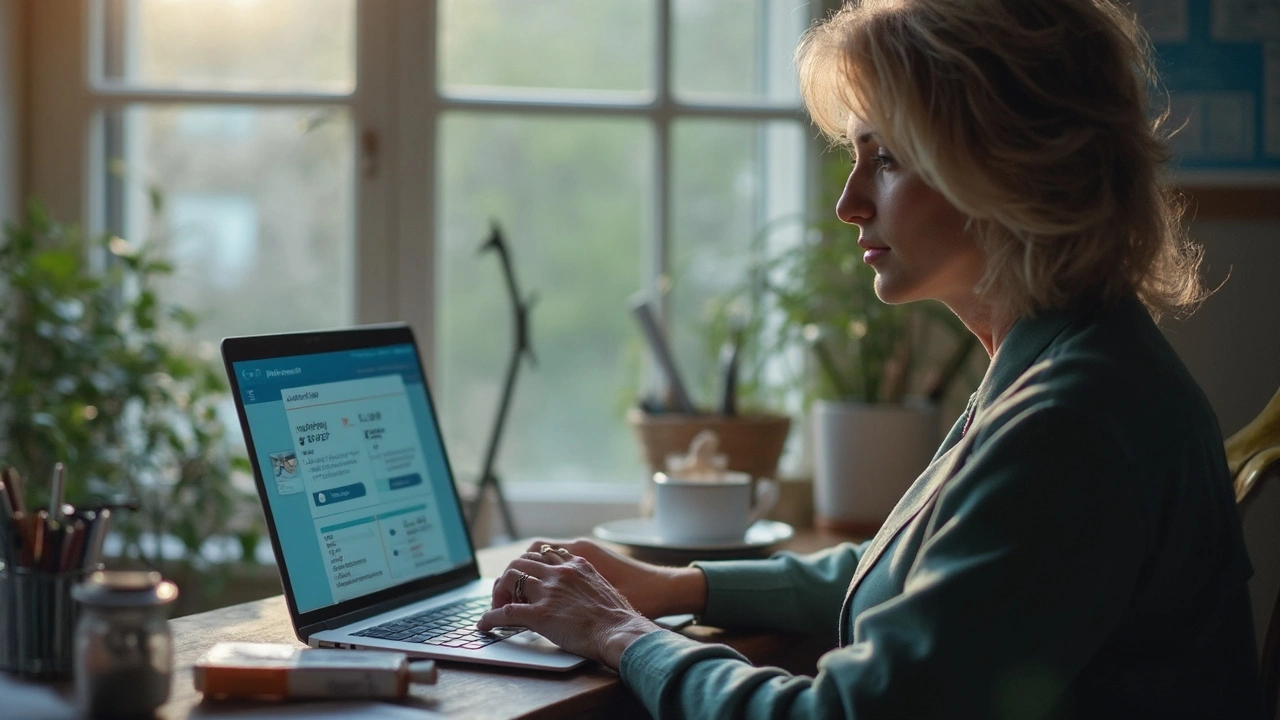- Understanding Penile Surgery for Phimosis Treatment: Risks and Benefits Dec 27, 2023
- Insurance Appeals: Fighting Denials When a Generic Medication Doesn't Work Jan 28, 2026
- Herpes Simplex on Skin: How to Prevent Recurrences and Care for Outbreaks Jan 6, 2026
- Pediatric Hearing Loss: Screening, Causes, and Early Intervention Dec 1, 2025
- Exploring Effective Alternatives to Isotroin for Acne Treatment Dec 19, 2024
Pharmacy Licensing: How to Know Your Pharmacy Is Legit
Ever wondered if the pharmacy you’re ordering from is real or just a front for shady deals? It’s a common worry, especially when you click ‘buy now’ on a site you’ve never heard of. The good news? You can check a pharmacy’s license in a few seconds, and it doesn’t take a law degree. Below are the easiest ways to verify a pharmacy’s credentials and stay safe.
Why Licensing Matters
A licensed pharmacy follows strict rules set by health authorities. That means the medicines they sell are authentic, stored correctly, and backed by a qualified pharmacist. Unlicensed sites often ship counterfeit pills, wrong dosages, or even dangerous substances. Knowing a pharmacy’s license status protects you from health risks and saves money on fake products.
Quick Ways to Verify a Pharmacy’s License
1. Check the website URL. Legit pharmacies usually use a .com, .org, or a country‑specific domain that matches their location. Look for “https://” and a padlock icon – it shows the site encrypts your data.
2. Search the licensing board. In the U.S., each state has a pharmacy board (for example, the California Board of Pharmacy). A quick Google search of the pharmacy name plus “license” or “board” will often pull up a verification page.
3. Use accredited pharmacy directories. Websites like the NABP’s VIPPS program list verified online pharmacies. If a pharmacy isn’t in the list, treat it with caution.
4. Look for a physical address and phone number. Real pharmacies display a clinic address and a working phone line. Call the number; a real pharmacist will answer and can confirm the license.
5. Read the disclaimer. Licensed pharmacies state that a prescription is required for prescription drugs. If a site sells potent meds without asking for a prescription, it’s a red flag.
6. Check for professional logos. Symbols like the “Pharmacy” sign with a mortar and pestle or a state board seal can be genuine, but verify them against the official site of the board.
7. Inspect the privacy policy. A legit pharmacy respects patient privacy and outlines how they handle your data. Vague or missing policies indicate a low‑quality operation.
If any of these checks raise doubts, move on to a different pharmacy. It’s better to spend a few extra minutes than risk your health.
What to Do If You Find an Unlicensed Pharmacy
Report it to your local pharmacy board or the FDA’s MedWatch program. You can also flag it on consumer watchdog sites so other shoppers stay warned. Sharing your experience helps tighten regulations and protects the community.
When you find a reliable, licensed pharmacy, keep a record of its license number. Future refills become a breeze, and you’ll have proof of legitimacy if any issues arise.
Bottom line: A quick license check is your first line of defense against counterfeit meds. Use the steps above every time you shop online, and you’ll keep your medicines safe and your wallet happy.
Is NorthwestPharmacy.com Legit? Detailed 2024 Review on Licensing, Customer Reviews & Refunds
- Elara Huxleigh
- May 19, 2025
Curious if NorthwestPharmacy.com is trustworthy? We dig into their licensing, what actual customers say, and how their refund policies work. Get detailed insights with real-world facts, practical tips, and a breakdown of everything you need to know before ordering. We even compare them to other online pharmacies worth considering. Find out what really matters if you're shopping for prescriptions online.
